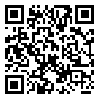Volume 20, Issue 2 (Summer 2025)
Salmand: Iranian Journal of Ageing 2025, 20(2): 172-195 |
Back to browse issues page
Download citation:
BibTeX | RIS | EndNote | Medlars | ProCite | Reference Manager | RefWorks
Send citation to:



BibTeX | RIS | EndNote | Medlars | ProCite | Reference Manager | RefWorks
Send citation to:
Gheysari F, Mazaheri M. Effectiveness of Computerized and Traditional Cognitive Interventions in improving the Cognitive Functions of Iranian Older Adults: A Systematic Review and Meta-Analysis. Salmand: Iranian Journal of Ageing 2025; 20 (2) :172-195
URL: http://salmandj.uswr.ac.ir/article-1-2726-en.html
URL: http://salmandj.uswr.ac.ir/article-1-2726-en.html
1- Department of Psychology, Faculty of Education and Psychology, University of Sistan and Baluchestan, Zahedan, Iran.
2- Department of Psychology, Faculty of Education and Psychology, University of Sistan and Baluchestan, Zahedan, Iran. ,mazaheri@hamoon.usb.ac.ir
2- Department of Psychology, Faculty of Education and Psychology, University of Sistan and Baluchestan, Zahedan, Iran. ,
Abstract: (5923 Views)
Objectives With the increase in the aged population worldwide, cognitive disorders have become a main concern. They can affect the health and quality of life of older adults. The present study aims to review the studies on the effect of computerized and traditional cognitive interventions on the cognitive functions of healthy older adults, those with mild cognitive impairment, or Alzheimer’s disease in Iran.
Methods & Materials This is a systematic review and meta-analysis study. Using the keywords "cognitive rehabilitation", "cognitive stimulation", "cognitive training", "software", "computer", "computer games", "cognitive functions", "executive functions", "attention", "memory", "aged", "aging", "older adults", "elderly", "mild cognitive impairment", "Alzheimer's disease", the related studies published from 2012 to 2023 were searched in Web of Science, Scopus, PubMed, Scientific Information Database (SID), and IranDoc. A total of 712 studies were retrieved. After review, 26 studies met the inclusion criteria. The meta-analysis was done using the comprehensive meta-analysis 2.0 (CMA) software. The standardized mean differences (SMDs) between the experimental and control groups were calculated as Hedges' g at 95% confidence interval (CI). Pooling of SMDs across studies was performed using a random-effects model. A mixed-effects model was used for subgroup analysis.
Results The results of meta-analysis showed that computerized and traditional cognitive interventions had a positive and high effect on improving cognitive functions (g=1.57, 95% CI, 1.33%, 1.81%, P<0.001). Also, the subgroup analysis results showed that computerized cognitive interventions were slightly more effective than traditional cognitive interventions.
Conclusion It is possible to benefit from computerized and traditional cognitive interventions to reduce cognitive deficits and improve the cognitive functions of Iranian older adults. Therefore, these interventions can be used for the effective treatment of cognitive disorders in older adults.
Methods & Materials This is a systematic review and meta-analysis study. Using the keywords "cognitive rehabilitation", "cognitive stimulation", "cognitive training", "software", "computer", "computer games", "cognitive functions", "executive functions", "attention", "memory", "aged", "aging", "older adults", "elderly", "mild cognitive impairment", "Alzheimer's disease", the related studies published from 2012 to 2023 were searched in Web of Science, Scopus, PubMed, Scientific Information Database (SID), and IranDoc. A total of 712 studies were retrieved. After review, 26 studies met the inclusion criteria. The meta-analysis was done using the comprehensive meta-analysis 2.0 (CMA) software. The standardized mean differences (SMDs) between the experimental and control groups were calculated as Hedges' g at 95% confidence interval (CI). Pooling of SMDs across studies was performed using a random-effects model. A mixed-effects model was used for subgroup analysis.
Results The results of meta-analysis showed that computerized and traditional cognitive interventions had a positive and high effect on improving cognitive functions (g=1.57, 95% CI, 1.33%, 1.81%, P<0.001). Also, the subgroup analysis results showed that computerized cognitive interventions were slightly more effective than traditional cognitive interventions.
Conclusion It is possible to benefit from computerized and traditional cognitive interventions to reduce cognitive deficits and improve the cognitive functions of Iranian older adults. Therefore, these interventions can be used for the effective treatment of cognitive disorders in older adults.
Type of Study: Research |
Subject:
gerontology
Received: 2023/10/26 | Accepted: 2024/04/06 | Published: 2025/07/01
Received: 2023/10/26 | Accepted: 2024/04/06 | Published: 2025/07/01
Send email to the article author
| Rights and permissions | |
 |
This work is licensed under a Creative Commons Attribution-NonCommercial 4.0 International License. |








